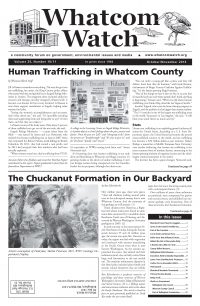A move by the prosecutor of the International Criminal Court in The Hague signals a landmark shift that could reshape how business is done in developing countries, says Global Witness, a nonpolitical organization that works to resolve human rights abuses in developing countries.
Company executives, politicians and individuals could now be held criminally responsible under international law for crimes linked to land grabbing and environmental destruction. Global Witness has been campaigning for the ICC to investigate crimes committed amid the global rush for land and natural resources.
“Chasing communities off their land and trashing the environment has become an accepted way of doing business in many resource-rich yet cash-poor countries,” said Gillian Caldwell, executive director at Global Witness.
Hague prosecutor Fatou B. Bensouda acknowledged that she will investigate a case filed last year that catalogs mass human rights abuses related to systematic land seizures in Cambodia, where business leaders have been working hand-in-glove with the country’s government.
If accepted, the case would be the first case in international criminal law where corporate actors would be prime targets for investigation. Business elites stand accused of unlawful self-enrichment through a systematic campaign of illegal land seizures, including the forcible displacement of hundreds of thousands of Cambodians with the help of the state police, military and judiciary. The case was filed at the ICC by international human rights lawyer Richard J. Rogers of the law firm Global Diligence LLP, with support from Cambodian and international organizations including Global Witness.
For more information on the case, email Alice Harrison at aharrison@globalwitness.org.
























































Executives Could Be Tried for Environmental Destruction
A move by the prosecutor of the International Criminal Court in The Hague signals a landmark shift that could reshape how business is done in developing countries, says Global Witness, a nonpolitical organization that works to resolve human rights abuses in developing countries.
Company executives, politicians and individuals could now be held criminally responsible under international law for crimes linked to land grabbing and environmental destruction. Global Witness has been campaigning for the ICC to investigate crimes committed amid the global rush for land and natural resources.
“Chasing communities off their land and trashing the environment has become an accepted way of doing business in many resource-rich yet cash-poor countries,” said Gillian Caldwell, executive director at Global Witness.
Hague prosecutor Fatou B. Bensouda acknowledged that she will investigate a case filed last year that catalogs mass human rights abuses related to systematic land seizures in Cambodia, where business leaders have been working hand-in-glove with the country’s government.
If accepted, the case would be the first case in international criminal law where corporate actors would be prime targets for investigation. Business elites stand accused of unlawful self-enrichment through a systematic campaign of illegal land seizures, including the forcible displacement of hundreds of thousands of Cambodians with the help of the state police, military and judiciary. The case was filed at the ICC by international human rights lawyer Richard J. Rogers of the law firm Global Diligence LLP, with support from Cambodian and international organizations including Global Witness.
For more information on the case, email Alice Harrison at aharrison@globalwitness.org.